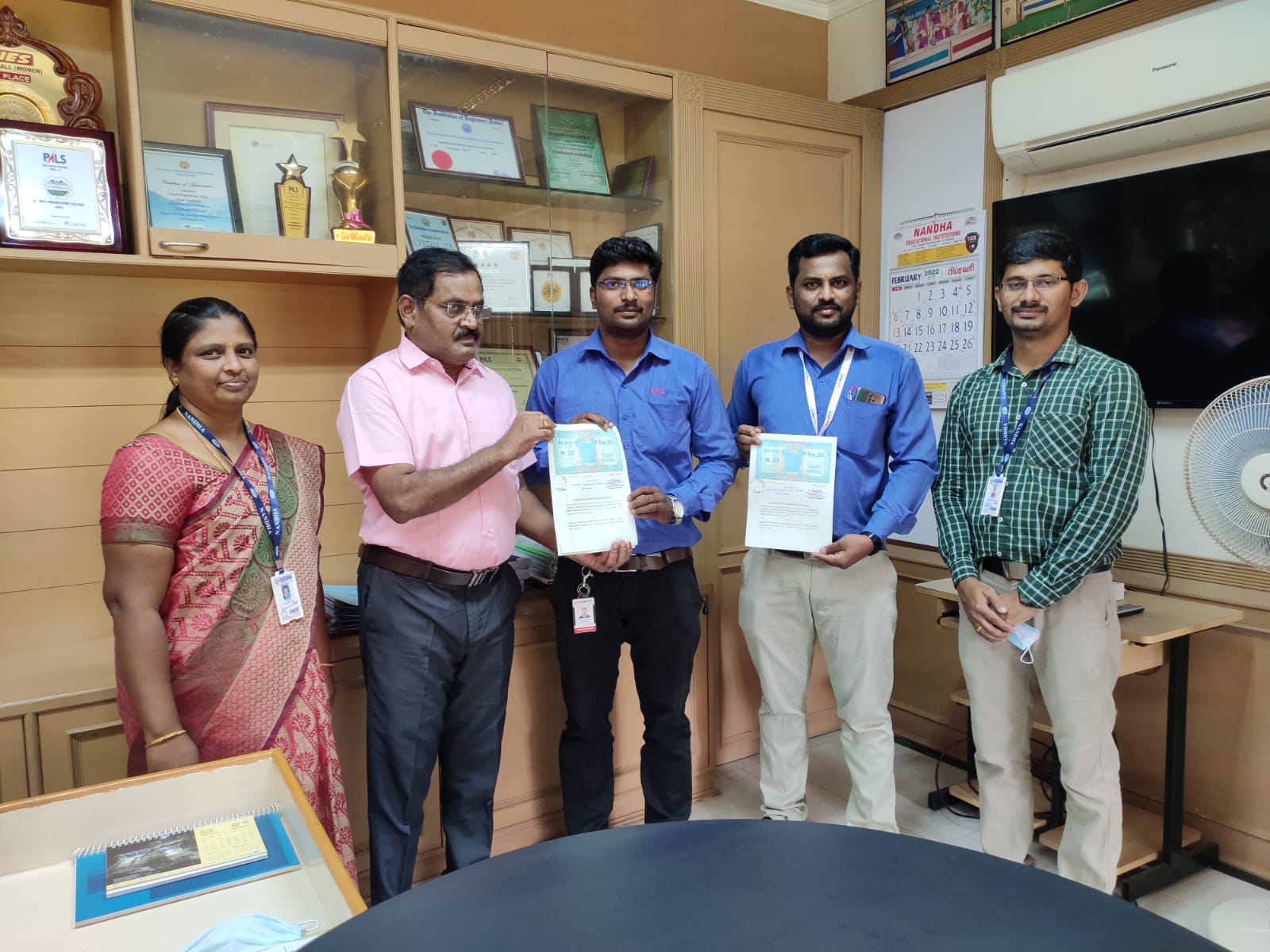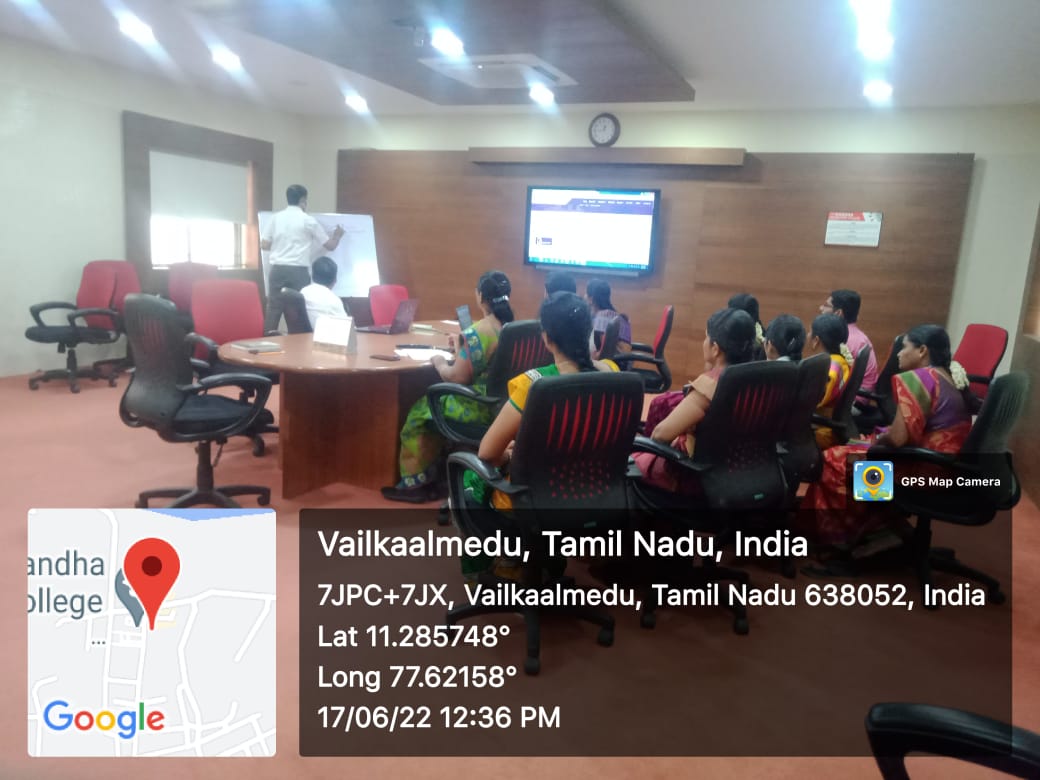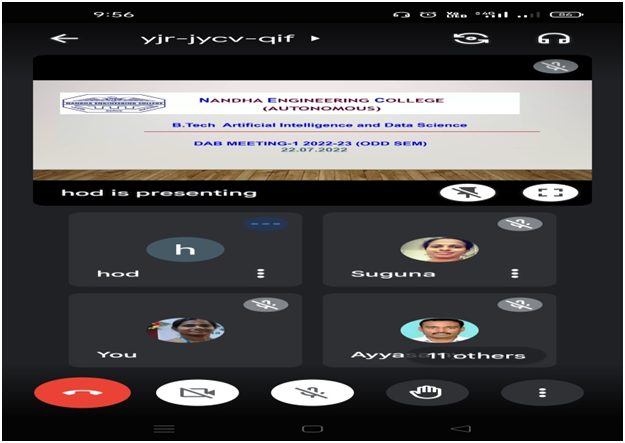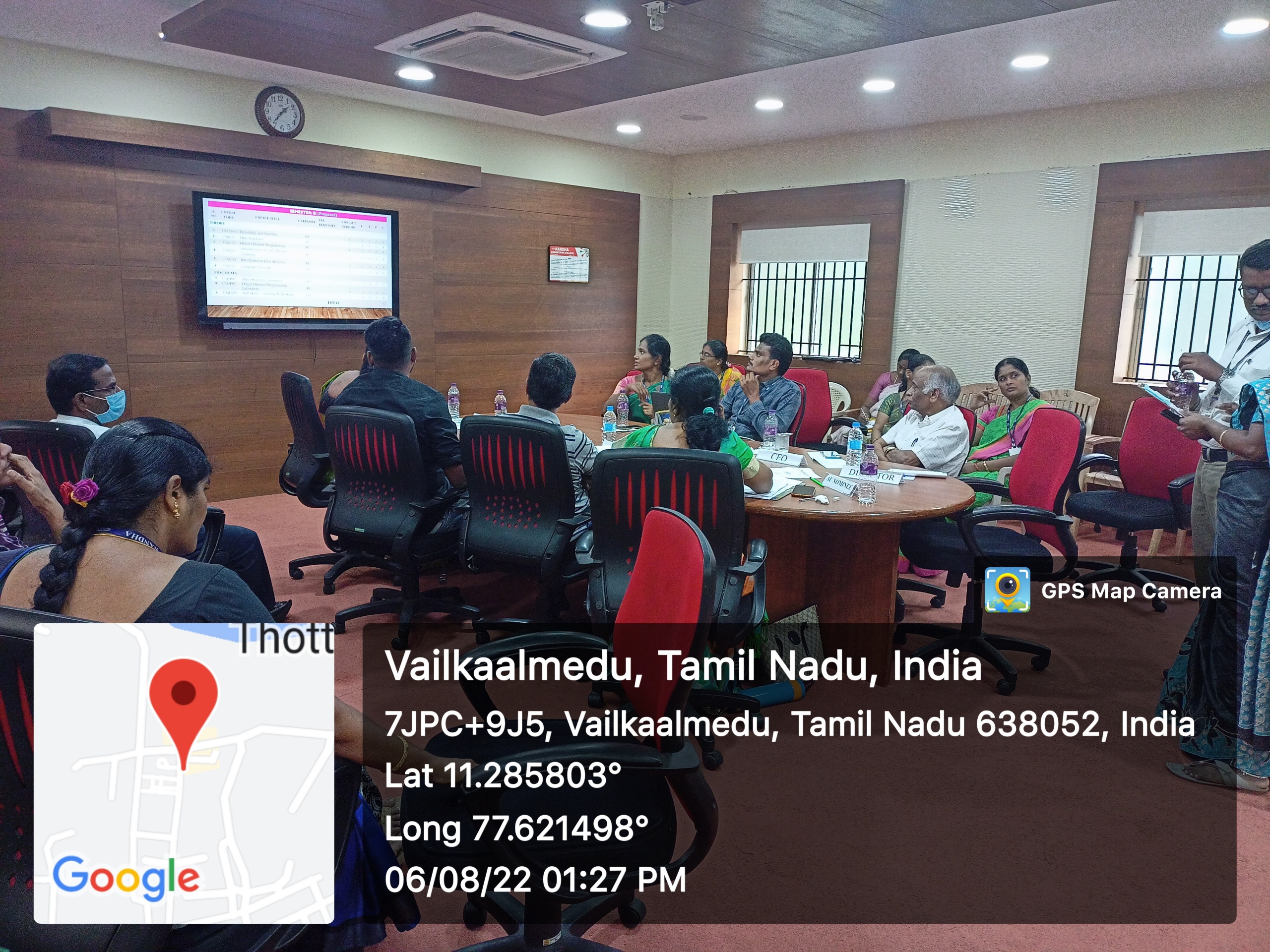
ABOUT THE DEPARTMENT
The Department of Artificial Intelligence and Data Science was established in the year 2021. It offers a 4 year B.Tech Programme. It has dedicated faculty members specialized in different areas of Computer Science and Engineering.
VISION
To emerge as a renowned department in providing quality Artificial Intelligence and Data Science education to meet the ever growing needs of the society.
MISSION
Artificial Intelligence and Data Science department is committed
- To provide quality and value based education to produce Artificial Intelligence professionals with ethical and social responsibility.
- To excel in the thrust areas of Artificial Intelligence, Machine Learning and Data Science by imparting programming knowledge and Mathematical skill set to solve real world problems.
- To create a learner centric environment that motivates the students in adopting emerging technologies of the rapidly changing artificial intelligence and data science society.
PROGRAM EDUCATIONAL OBJECTIVES (PEOs)
The graduates of Artificial intelligence and data science will be able:
PEO 1: Core Competency: To apply mathematical, scientific and engineering concepts for an artificial intelligence and data scientist to remit the various challenges using emerging AI technologies.
PEO 2: Research, Innovation and Entrepreneurship: To work productively in multidisciplinary teams and provide innovative ideas for real time problems through research.
PEO 3: Ethics, Human values and Life-long learning: To embrace lifelong learning with higher ethical standards and be the source for socio-economic growth.
PROGRAM OUTCOMES (POs)
PO 1: Engineering knowledge: Apply the knowledge of mathematics, science, engineering fundamentals and an engineering specialization to the solution of complex engineering problems.
PO 2: Problem analysis: Identify, formulate, review research literature and analyze complex engineering problems reaching substantiated conclusions using first principles of mathematics, natural sciences and engineering sciences.
PO 3: Design / development of solutions: Design solutions for complex engineering problems and design system components or processes that meet the specified needs with appropriate consideration for the public health and safety and the cultural, societal and environmental considerations.
PO 4: Conduct investigations of complex problems: Use research-based knowledge and research methods including design of experiments, analysis and interpretation of data and synthesis of the information to provide valid conclusions.
PO 5: Modern tool usage: Create, select and apply appropriate techniques, resources and modern engineering and IT tools including prediction and modelling to complex engineering activities with an understanding of the limitations.
PO 6: The engineer and society: Apply reasoning informed by the contextual knowledge to assess societal, health, safety, legal and cultural issues and the consequent responsibilities relevant to the professional engineering practice.
PO 7: Environment and sustainability: Understand the impact of the professional engineering solutions in societal and environmental contexts and demonstrate the knowledge and need for the sustainable development.
PO 8: Ethics: Apply ethical principles and commit to professional ethics and responsibilities and norms of the engineering practice.
PO 9: Individual and team work: Function effectively as an individual and as a member or leader in diverse teams and in multidisciplinary settings.
PO 10: Communication: Communicate effectively on complex engineering activities with the engineering community and with society at large such as being able to comprehend and write effective reports and design documentation and make effective presentations and give and receive clear instructions.
PO 11: Project management and finance: Demonstrate knowledge and understanding of the engineering and management principles and apply these to one’s own work, as a member and leader in a team, manage projects and in multidisciplinary environments.
PO 12: Life-long learning: Recognize the need for, and have the preparation and ability to engage in independent and life-long learning in the broadest context of technological change.
PROGRAM SPECIFIC OUTCOMES (PSOs)
PSO 1: Analytical Skill: Ability to Design and develop innovative automated systems applying mathematical, analytical, programming and operational skills to meet society needs.
PSO 2: Knowledge Proficiency: Provide a tangible foundation and enhance the abilities to qualify for Employment, Higher Studies and Research in Artificial Intelligence and Data science with ethical values.
PROGRAMMES OFFERED
- BTech. – Artificial Intelligence and Data Science – 4 Years (intake 60)
CURRICULUM & SYLLABUS
Department Faculty Members
2024 -25
| S.No | Staff Name | Designation | Qualification |
| 1. | Dr.P.Karunakaran | HoD/AI&DS | Pro&HOD |
| 2. | Dr.K.Lalitha | Prof. | M.E.,PhD |
| 3. | Dr.M.Karthikeyan | ASP | M.E.,PhD |
| 4. | Ms.M.Parvathi | AP | M.E., |
| 5. | Ms.M.Senthamarai | AP | M.E. |
| 6. | Ms.J.Jahina | AP | M.E. |
| 7. | Ms.T.Indhumathi | AP | M.E. |
| 8. | Ms.S.Shanmugapriya | AP | M.E. |
| 9. | Ms.S.A.Suje | AP | M.E. |
| 10. | Ms.M.M.Kokila | AP | M.E. |
| 11. | Mr.S.Dinesh | AP | M.E. |
| 12. | Mr.C.Balasubramaniam | AP | M.E. |
Department Students List
Programme Assessment Committee (PAC)
Board of Studies
Students Activities
Department Activities
Organized
2021 -22
| S.No. | Date | Title | Resource Person |
| 1 | 12.01.2022 | National Youth Day Celebration | Mr. K. Vasudevan, President, Vijnana Bharathi, Erode District |
| 2 | 29.04.2022 | A technical seminar on “AI :Past-Present-Future” | Mr. P. Murugesan, Hob’l Professional Speaker |
MoUs
MEMORANDUM OF UNDERSTANDING (MoU)
The Department has signed MoUs with the following companies.
IDM TECH PARK.
LIVEWIRE, Erode.
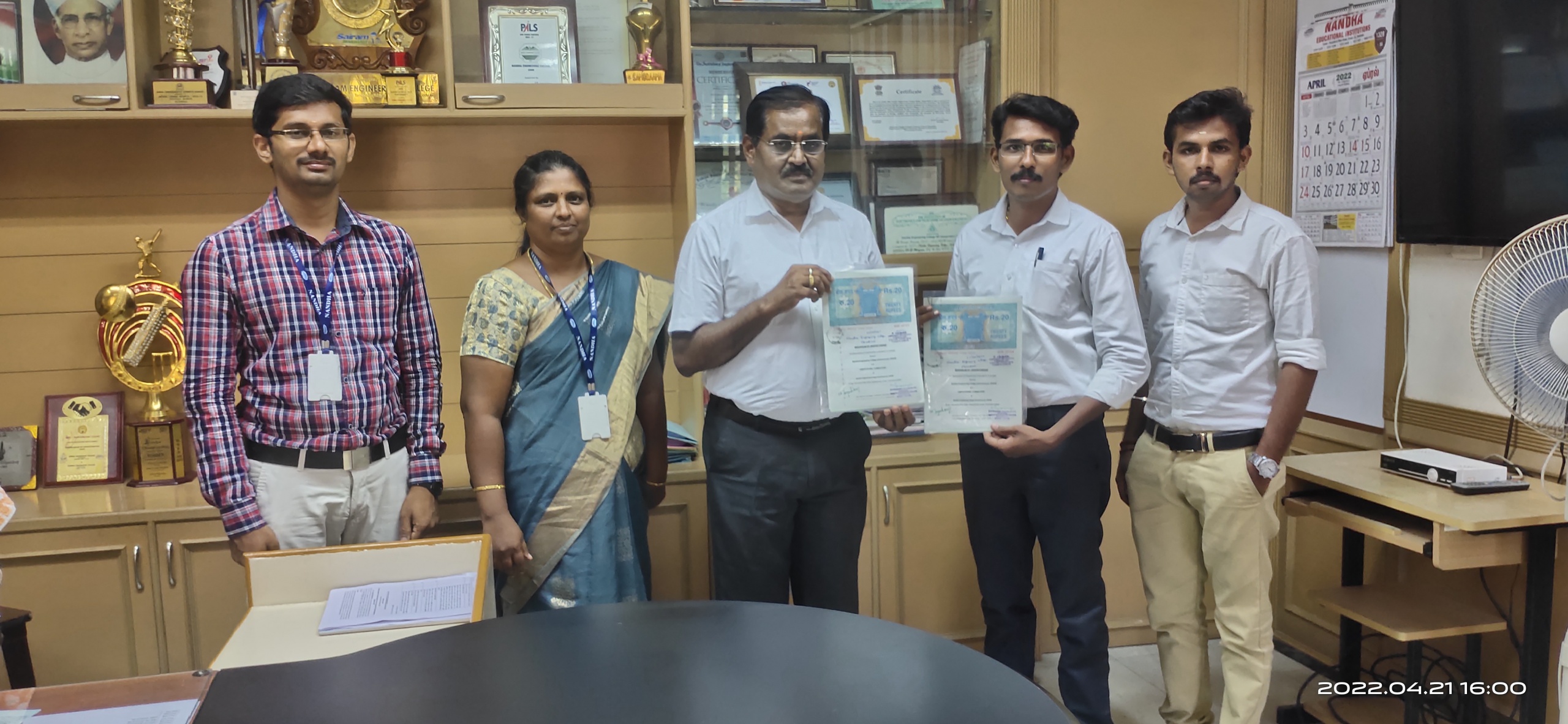
IDM TECH PARK.
